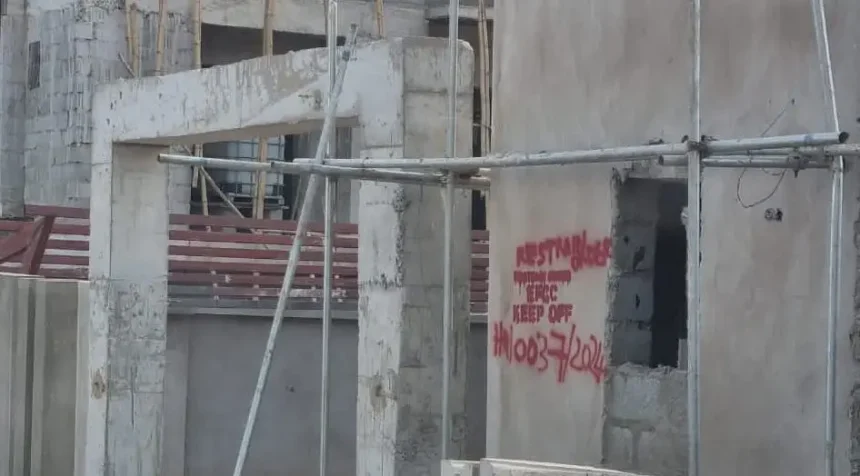A high-profile land fraud case has sent shockwaves through Abuja’s real estate sector, as executives of Homadil Realty Limited face serious charges for allegedly forging documents to illegally acquire prime plots in the city’s upscale districts.
In a courtroom drama that unfolded at the Federal Capital Territory (FCT) High Court in Apo, a couple, Rebecca Isaac (also known as Bilkisu Ishaku Aliyu) and her husband, Ishaku Isaac, were arraigned on January 28 alongside their real estate company, Homadil Realty Limited. Also named in the case is Richard John, the Executive Director of Rychado Homes, who was notably absent from the arraignment. The police prosecutor, Abdulrashid Sidi, has built a strong case against the defendants, accusing them of fraudulent activities that targeted high-demand properties in Guzape and Katampe, two of Abuja’s most sought-after locations.
The allegations against the defendants include fabricating an Irrevocable Power of Attorney to falsely claim ownership of Plot 4022 in Guzape District. This document, the prosecution asserts, was used as a tool to lure unsuspecting buyers into fraudulent transactions. Additionally, the accused allegedly misrepresented themselves as the rightful owners of Plots 1861 and 1862 in Katampe District, selling these properties for N25 million each under false pretenses. Another charge states that they used similar deceitful tactics to sell Plot 1863 in Katampe District to unsuspecting buyers for N25 million. The biggest transaction under scrutiny is the fraudulent sale of Plot 4022 in Guzape District, which reportedly fetched the accused a staggering N40 million.

With charges filed under Sections 1(3) and 4(3) of the Advance Fee Fraud and Other Fraud-Related Offences Act of 2006, the accused face serious legal consequences. If convicted, they could be sentenced to imprisonment for a term ranging from seven to twenty years without the option of a fine. The prosecution argues that their scheme was a calculated attempt to deceive investors and buyers by issuing false statements and misleading documents to validate their fraudulent claims.
During the court proceedings, the defendants pleaded not guilty to all five counts of fraud. Presiding over the case, Justice Sadia Mayana granted them bail, setting the amount at N10 million each, with two sureties of equal sum. The sureties must be reputable figures with verifiable landed property in Abuja, ensuring accountability as the case proceeds. The trial is scheduled to continue on February 11, when more evidence and testimonies are expected to be presented.

This case is not the first legal battle surrounding the disputed properties. In December 2024, the Federal High Court in Abuja granted the Economic and Financial Crimes Commission (EFCC) a 60-day interim forfeiture order over the four contested plots. This move, initiated on December 11, was meant to facilitate further investigations into the fraudulent activities linked to these properties. The affected plots—4022 in Guzape and 1861, 1862, and 1863 in Katampe—remain under close scrutiny by law enforcement agencies as they work to unravel the full scope of the fraudulent transactions.

Meanwhile, this high-profile case has also led to attempts to silence investigative journalists looking into the fraudulent dealings. A reporter who had been investigating the case, armed with an FCT Legal Services report that implicated Ms. Isaac in collusion with land department officials, was targeted in a police inquiry. On May 30, 2024, a police officer, Ezemba Ezekiel, contacted the journalist, requesting their presence at the Nigeria Police Force Intelligence Response Team (NPF-IRT) office in Guzape. This move was prompted by a complaint filed by Mrs. Isaac against the journalist’s report. However, following intense public scrutiny, the police opted to back down on the case, allowing investigative journalism to continue exposing fraudulent land deals in Abuja.
As the legal battle unfolds, the case continues to expose the dark side of Abuja’s real estate market, where fraudulent schemes threaten the integrity of property transactions. Authorities remain under pressure to clamp down on such activities, ensuring that justice is served for both investors and the general public.



